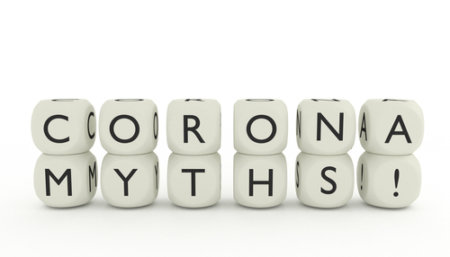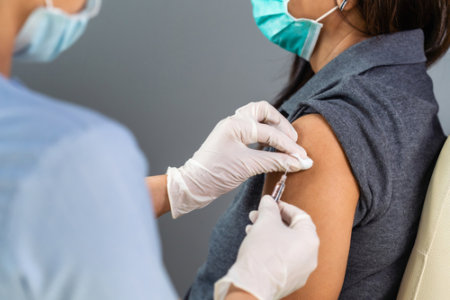There are now approved and recommended Covid-19 vaccines in the United States. Accurate vaccine information is critical and can help stop common rumors and myths. All vaccines in the United States are easily accessible and available to everyone at no cost. Everybody aged 12 and over should get a COVID-19 vaccine as soon as they can.
Many hospitals, doctors’ offices, pharmacies, clinics, and retail pharmacies offer COVID-19 vaccines. Discuss with your child’s healthcare provider whether the COVID-19 vaccine is available.
Providers of COVID-19 Vaccines Cannot:
- Charge you for the vaccine.
- Charge you directly for any copays, administration fees, coinsurance, or the balance of the bill after proper reimbursement
- Deny vaccination to anyone who does not have health insurance coverage, is underinsured, or is out of network.
- Charge an office visit or other fee to the recipient if the only service provided is a COVID-19 vaccination.
- Need additional services for a person to take a COVID-19 vaccine; however, other healthcare services can be provided simultaneously and billed as appropriate.
It can be hard to determine which information sources you can trust. So before you look at vaccine information online, make sure it comes from a reliable source like WHO, CDC, or the Department of Health. Also, ensure that the data is regularly updated.
How Does The Vaccine Work?
COVID-19 vaccines prepare our immune system to recognize and combat the virus that causes COVID-19. Unfortunately, it usually takes two weeks for the body’s immunity to develop against COVID-19.
A person can still get COVID-19 even though they have been vaccinated. People are considered fully vaccinated two weeks after receiving their second doses of the Pfizer BioNTech or Moderna COVID-19 vaccinations or two weeks after receiving the single-dose Johnson & Johnson Janssen COVID-19 vaccination.
Talk to your healthcare provider if you have any medical conditions or are taking medications that lower your immune system. People with autoimmune diseases are more likely to get severe COVID-19 infections. Therefore, vaccination is highly recommended in most cases. If you have an autoimmune condition, talk to your healthcare provider To discuss vaccination’s benefits and risks. To prevent COVID-19, you may need to continue taking the required precautions.
So, Are The Vaccines Effective?
Millions of Americans have got COVID-19 vaccines. These vaccines have endured the most rigorous safety monitoring in American history. This monitoring includes using both established and new safety monitoring systems to ensure that COVID-19 vaccines are safe. As a result, COVID-19 vaccines cannot give you COVID-19.
In addition, V-safe, a smartphone-based after-vaccination health tool for COVID-19 patients, is available. CDC has created v-safe to quickly identify safety concerns with COVID-19 vaccines.
Side effects may occur after the COVID-19 vaccination. However, these side effects are normal and part of your body’s protection-building process. Side effects of COVID-19 vaccination such as fatigue, headaches, and chills may impact your daily activities but should disappear within a few days.
Herd Immunity
Population immunity makes it hard for a disease to spread from person to person. It protects people who can’t be vaccinated like newborns or are allergic to vaccines such as newborns. The percentage of people who need to have protection to manage population immunity varies by disease.
We still don’t know how many people must be vaccinated against COVID-19 to protect the entire population.
New, Stronger COVID Variants
The virus that causes COVID-19 is evolving in America. According to current information, COVID-19 vaccines approved for use in the United States protect against all variants. However, if the variants circulate in the community, some variants can cause illness after being fully vaccinated.
We continue to discover how effective vaccines against COVID-19 are:

10 Myths About The Vaccine
1. Will The COVID-19 Vaccine Affect My DNA?
No, two COVID-19 vaccines have been approved and recommended for US use: messenger RNA (mRNA) and a virus vector vaccine. Both the viral vector COVID-19 vaccines and mRNA deliver instructions (genetic materials) to our cells to build protection against COVID-19. However, the material does not enter the nucleus of a cell. The nucleus contains our DNA. Therefore, the vaccines’ genetic material cannot interact or affect our DNA in any way. All COVID-19 vaccines work with the body’s natural protection to safely build immunity to disease.
2. Can I Test Positive For COVID-19 if I Get a COVID-19 Vaccination?
No, none of the COVID-19 recommended vaccines will cause you to test positive for viral tests. These tests determine if you have an active infection. None of the COVID-19 vaccinations in clinical trials in the United States can cause you to test positive for viral infections. Vaccinations prevent most people from getting sick. A small number of people who have got will still be able to get COVID-19. Some evidence suggests that vaccines may reduce the severity of illness in those who are vaccinated but still become sick.
You may be positive for antibodies if your body has an immune reaction to vaccination. In addition, antibody tests can indicate that you have had an infection in the past and may have some protection against the virus. Experts are currently investigating how COVID-19 vaccination might affect antibody testing results.
3. Can Be Near Someone Who Received a COVID-19 Vaccine Affect My Menstrual Cycle?
No, stress, sleep problems, diet and exercise changes, as well as changes in your schedule, can all affect your menstrual cycle. In addition, infections may affect the menstrual cycle.
4. Is It Safe To Get The COVID-19 Vaccination If I want to Have a child One Day?
Yes, you may be able to receive a COVID-19 vaccination if you’re trying to conceive now or in the future.
There is no evidence to suggest that COVID-19 vaccines cause problems in pregnancy or the development of the placenta. There is also no evidence that any vaccine can cause fertility problems, even COVID-19.
This vaccine may help your newborn baby. New research has shown that mothers who have received the COVID-19 vaccine develop antibodies to the virus, which they then pass to their unborn child through the placenta. In addition, breast milk also passes antibodies to newborns from mothers, as shown in a new study. It indicates that newborns may have some immunity to the disease, which is important because young children can’t get the vaccine.
Scientists are currently examining COVID-19 vaccines for side effects. They will continue to do so for many more years.
5. Can I Get COVID-19 Vaccination And Become COVID-19 Infected?
No, COVID-19 vaccines cannot cause COVID-19-related illness.
COVID-19 vaccines train our immune system to recognize and combat the virus that causes COVID-19. This process can sometimes cause symptoms such as fever. However, these symptoms are normal signs that your body is building immunity against COVID-19.
It usually takes several weeks for immunity to develop (protection against COVID-19 virus) after vaccination. Therefore, a person can become infected with COVID-19 even after or before vaccination. Because the vaccine is not sufficiently effective, this could happen.
6. Can the CDC require me to get a COVID-19 vaccination?
No, the federal government doesn’t require or mandate vaccinations for anyone. The CDC also does not monitor or maintain a person’s records regarding vaccinations.
It is up to the state or any other applicable law whether a state, local government or employer can mandate or require COVID-19 vaccine. If you have any questions regarding COVID-19 vaccination requirements, please contact your state government.
7. Can You Become Magnetic After Receiving The COVID-19 Vaccine?
No, the COVID-19 vaccine does not contain any ingredients that could create an electromagnetic field at your injection site.
All COVID-19 vaccines contain no metals like iron, nickel, or cobalt. A typical COVID-19 vaccine dose is less than one milliliter. This is sufficient to prevent magnets from being attracted to your vaccination site, even if it contains a magnetic metal.
8. Do Any COVID-19 Approved Vaccines For The United States Release or Shed Any of Their Components?
No, vaccine shedding is only possible when the vaccine contains a weaker version of the virus. All vaccines approved for use in the United States do not contain live viruses. Also, COVID-19 vaccines do not allow vaccine components to remain in the body. This makes it impossible for any vaccine components to build up in tissue or other organs.
There are two types of COVID-19-approved vaccines currently available: the mRNA and the viral vector vaccines.
9. Can Individuals With Allergies Receive The COVID-19 Vaccination?
Yes, with two exceptions.
- Anyone with a severe allergic reaction (anaphylaxis) to any component of either an mRNA vaccine or the Johnson & Johnson COVID-19 vaccine should NOT receive that vaccine. Many people will be safely able to receive an alternate vaccine. An allergic reaction is thought of as severe if a healthcare provider classifies it as an anaphylactic reaction or a person needs treatment with epinephrine or EpiPen© or if the person must go to the hospital.
Polyethylene Glycol (PEG), or Polysorbate Allergic
- PEG and polysorbate have a close relationship. PEG is an ingredient of the mRNA vaccines Moderna and Pfizer and polysorbate in the Johnson & Johnson/Janssen vaccine. You should avoid the mRNA COVID-19 vaccine if you have an allergy to PEG. Ask your doctor whether you are eligible for the J&J/Janssen vaccination.
- You should avoid the J&J/Janssen CoVID-19 vaccine if you have an allergy to polysorbate. Ask your doctor about an mRNA COVID-19 vaccination.
- Anaphylaxis is a severe reaction to vaccines or injectables (intramuscular and intravenous). Patients with this condition should consult their doctor to determine if they are at risk.
10. Do I Have To Get The COVID-19 Vaccination Even Though I Have Had COVID-19 Before?
It is still unknown how protective the antibodies that COVID-19 infections produce. Therefore, it is not yet sure if these antibodies are protective. However, it is possible to determine the appropriate antibody levels to protect against reinfection.
Even those with COVID-19 may still be able to get the COVID-19 vaccination. Dose #1 can be administered four weeks after the onset of symptoms, or a positive test, whichever comes first. The person can get the Dose #2 may after your isolation period has ended. You can isolate yourself for up to 10 days or ten days plus 24 hours with no fever and improvement in symptoms.
